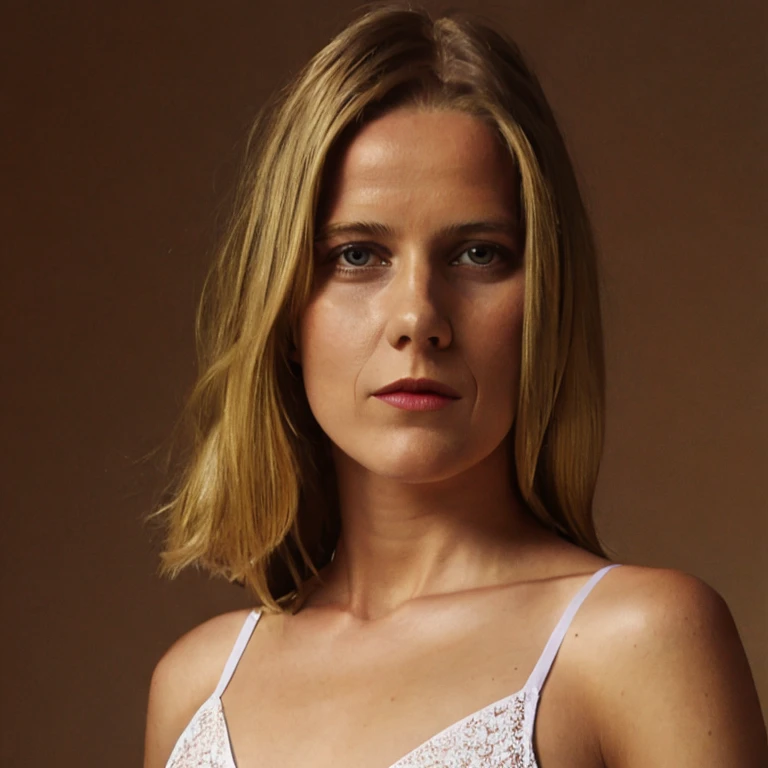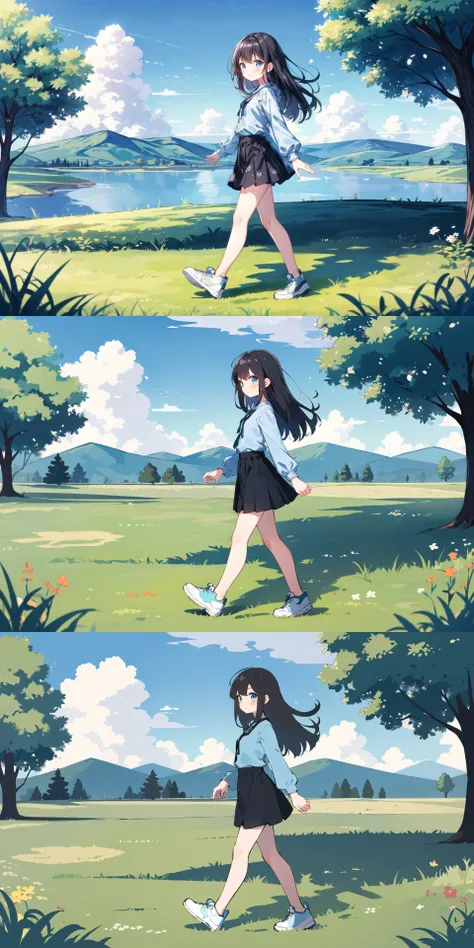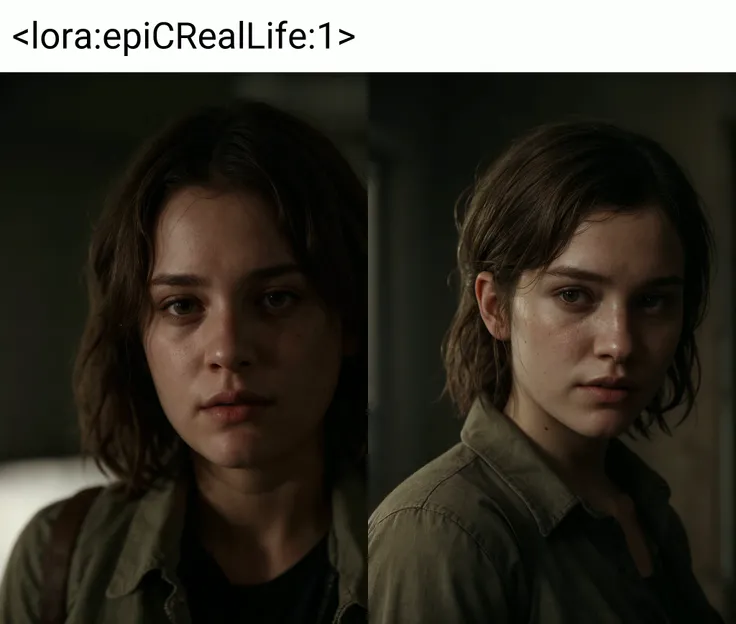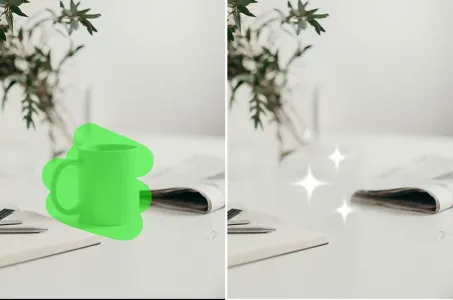Woman in a bikini sitting at a table with a bowl of food
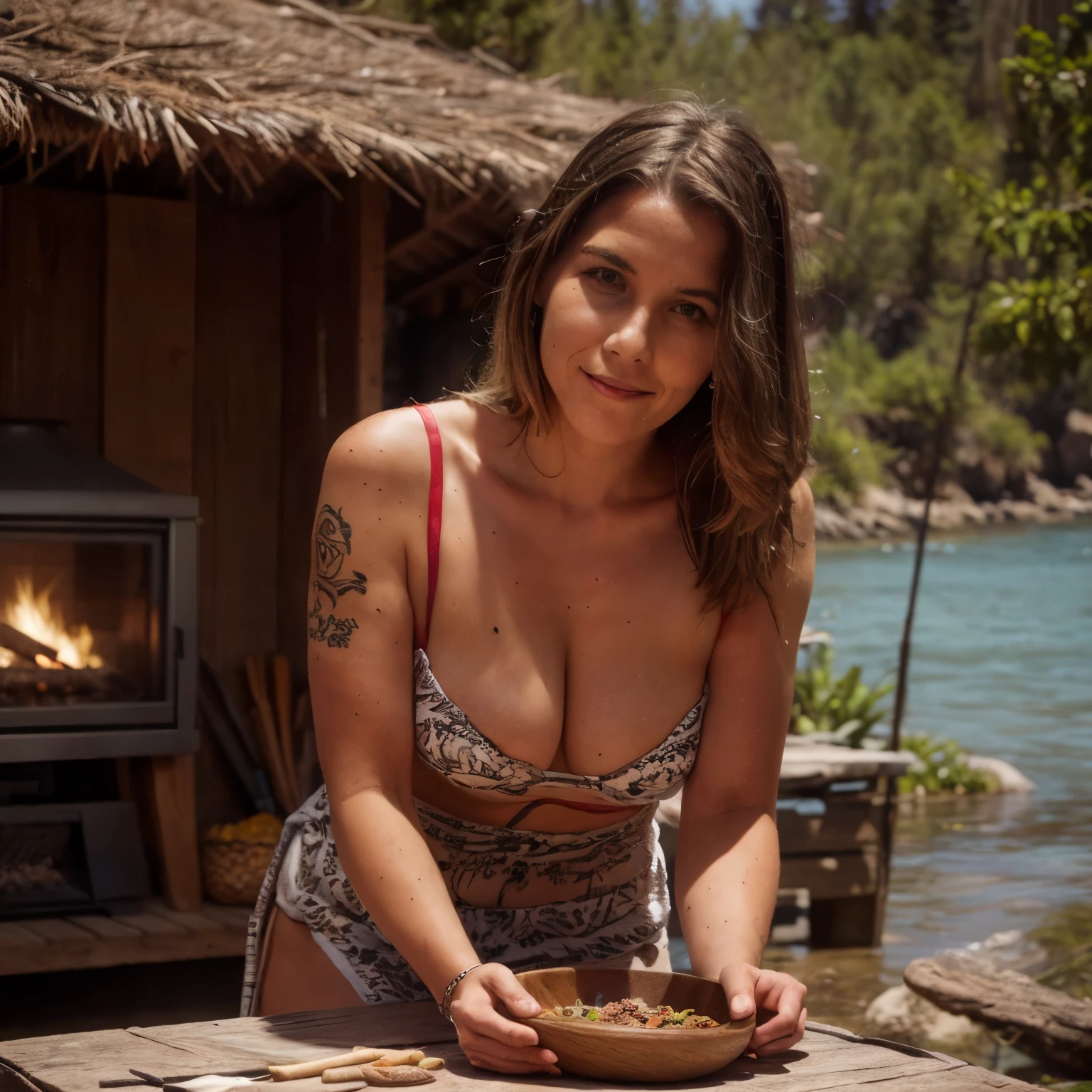

Puede que te interese mi privacidad.
A young Native American woman sits by the edge of the British Columbia seashore, her face glowing with happiness as she tends to the food being prepared. The lush temperate rainforest is far in the background, over hills and mountains, with the snow-capped peaks of the Rocky Mountains visible in the distance. Around her, several traditional Coast Salish lodges, or "longhouses" made from wood and covered with animal hides, are set up. These lodges are constructed from bison and deer hides, stretched over wooden frames, and adorned with intricate beadwork and traditional symbols. Short tree stumps and large stones are arranged as seating near the lodges. The camp is bustling with activity as other members of the Coast Salish tribe engage in various tasks. The woman is dressed in authentic Native American clothing typical of her tribe. She wears a fringed deerskin dress decorated with intricate beadwork and traditional symbols. Her long, black hair is braided and adorned with colorful beads and feathers. Her light blue eyes and full lips stand out against her sun-kissed skin, framed by high cheekbones and expressive eyebrows. She has a traditional tattoo, an intricate design that tells a story of her heritage and achievements. Nearby, traditional Coast Salish foodstuffs such as venison and salmon are being prepared on wooden skewers. Corn, beans, and squash are also part of the meal, with herbs and seasonings stored in handcrafted clay pots and wooden bowls. Stone knives and grinding stones, known as "muk" and "tsin," are used for food preparation, reflecting the tribe's resourcefulness. Cups and plates made from clay, either dried in the sun or fired in the campfire, are used for serving food. Wooden utensils and animal bone tools are also present, highlighting the use of natural materials. The beach is a lively scene, with other tribe members fishing by string or by hand along the shore, pulling fresh fish from the water. Some are working on wood, crafting canoes
Prompts
Copiar prompts
A young Native American woman sits by the edge of the British Columbia seashore, her face glowing with happiness as she tends to the food being prepared. The lush temperate rainforest is far in the background, over hills and mountains, with the snow-capped peaks of the Rocky Mountains visible in the distance.
Around her, several traditional Coast Salish lodges, or "longhouses" made from wood and covered with animal hides, are set up. These lodges are constructed from bison and deer hides, stretched over wooden frames, and adorned with intricate beadwork and traditional symbols. Short tree stumps and large stones are arranged as seating near the lodges. The camp is bustling with activity as other members of the Coast Salish tribe engage in various tasks.
The woman is dressed in authentic Native American clothing typical of her tribe. She wears a fringed deerskin dress decorated with intricate beadwork and traditional symbols. Her long, black hair is braided and adorned with colorful beads and feathers. Her light blue eyes and full lips stand out against her sun-kissed skin, framed by high cheekbones and expressive eyebrows. She has a traditional tattoo, an intricate design that tells a story of her heritage and achievements.
Nearby, traditional Coast Salish foodstuffs such as venison and salmon are being prepared on wooden skewers. Corn, beans, and squash are also part of the meal, with herbs and seasonings stored in handcrafted clay pots and wooden bowls. Stone knives and grinding stones, known as "muk" and "tsin," are used for food preparation, reflecting the tribe's resourcefulness. Cups and plates made from clay, either dried in the sun or fired in the campfire, are used for serving food. Wooden utensils and animal bone tools are also present, highlighting the use of natural materials.
The beach is a lively scene, with other tribe members fishing by string or by hand along the shore, pulling fresh fish from the water. Some are working on wood, crafting canoes
INFO
Checkpoint & LoRA
0 comentario(s)
0
0
0



